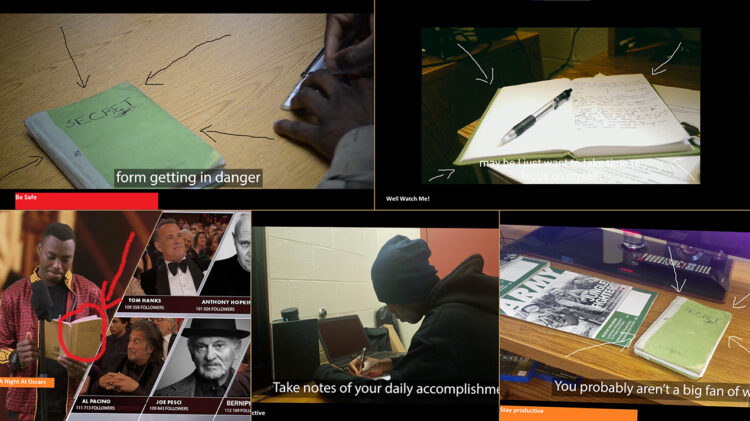If you finally managed to purchase a new apartment that you wanted for quite a long time, there will be a lot of things that you’ll need to think about. But, besides planning how you’ll place your furniture and decorations, there is a wide range of things that you’ll have to and want to buy before actually moving in.
However, if you never moved into a new apartment before, you might be wondering – what are the things that I’ll need to purchase? Well, luckily for all individuals that found themselves in this situation, this article can help. Let’s take a look at the 10 things MTD PM Team says you’ll need to buy before moving in:
1. First Things First – Purchase The Bedroom Necessities
Some of the first things that you’ll need to buy are bedroom essentials. Why should you do this first? Well, it is a new apartment and there is probably no furniture in it. So, if you do not want to sleep on the floor, start browsing online and brick-and-mortar businesses for bedroom necessities that include a mattress, pillows, bedding, and so on.
While on the topic of equipping your bedroom, you might also want to purchase coat hangers. This will allow you to unpack your clothes, which in return will allow you to start feeling like you are home! Additionally, by purchasing the hangers, you’ll be able to make the entire unpacking process easier.

2. You’ll Need Basic Tools
In order to join your furniture pieces together, as well as hang your decoration such as paintings and photographs, you’ll need to buy some basic tools. This means that you might want to go to the hardware store and buy a hammer, some nails, wall hooks, screwdrivers, and so on.
Besides the aforementioned things, you might also want to get a step stool that will allow you to place some of your items in your new apartments, as well as some batteries and an extension cord that will allow you to set up your TV, computer, appliances, and other gadgets.
3. Equip Your Bathroom Next
Trust me when I say this, you do not want to ruin your completely new floor with water, which is why you must opt for buying a shower curtain. Also, do not forget to buy a liner and wall hooks since you’ll need them as soon as you start unpacking your things. Keep in mind – pack a bag of essential toiletry items – such as soap, shampoo, and towels – when you are moving since you’ll surely want to take a shower after a long and tiring day of moving.

4. You’ll Need Cleaning Equipment
Before you place your items in your new home, you’ll probably want to ensure that everything is clean, especially since you won’t be able to vacuum under your closet every time you are cleaning your apartment. Hence, ensure that you purchase a high-quality vacuum, multi-surface wet wipes, paper towels, as well as anything else that you might use for cleaning.
Now, you might be wondering – how can I choose the best vacuum for my new apartment? Fortunately, there are various review websites such as StuffedAbode, which means that you can learn what are some of the best items you can buy, hence, ensure that you take advantage of such platforms.
5. Stock Up Your Kitchen
A lot of new homeowners opt for using plastic utensils, paper plates, and plastic cups before they purchase a dish set, however, you might want to buy several things before the move. And, if you want to make the entire experience more pleasant, opt for getting water glasses, mugs, as well as pans and pots that you can use for cooking.
And, if you want to set up the kitchen during the first day of your move then you should also buy some appliances such as a toaster, blender, as well as a microwave. Doing this will allow you to see how much space you are left with, which means that you’ll know what you can buy later on.

6. Get or Make a First-Aid Package
If there is one thing that you should take away from this article, it is the fact that accidents do happen when moving into a new place. No matter if someone trips down the stairs or if you cut yourself while opening the box, you’ll want to have something that will help you take care of your wounds.
Hence, do not forget to buy some bandages, anti-inflammatory medicine, band-aids, gauze, alcohol, wipes, and some cold medicine. By buying all of these things, you can ensure that you can treat any injury if it occurs, which means that you’ll be able to continue unpacking instead of losing time commuting to the ER.

7. Do Not Forget to Eat!
Moving is a stressful task, which is why you might want to avoid ordering fast food every time you feel hungry. This is why you might want to buy some food and prepare healthy homemade meals. Not only will this help you stay healthy, but it will also make you feel like you are truly in your home and it will allow you to see how your appliances and kitchen gadgets work.
8. Curtains Are Important as Well
One of the most common things new homeowners forget to buy is curtains. Curtains won’t only protect your privacy, but, they will also allow you to sleep better and they’ll completely tie the rooms together. Naturally, you’ll want to buy them last in order to match them with the new furniture and décor you bought.

Conclusion
As you can see, there is a wide range of things that you’ll need to buy when moving into your new apartment. However, if you choose to follow the list above, you’ll make the entire moving process easier, less time-consuming, and more importantly, you’ll make it less stressful for yourself.
So, now that you are aware of all the things you might want to purchase, you should not lose any more of your time. Instead, go back to the beginning of the list and go through it once again in order to create a list of things that you’ll need to buy before you move into your new home.





















































